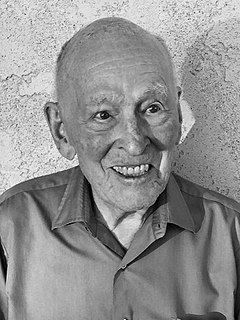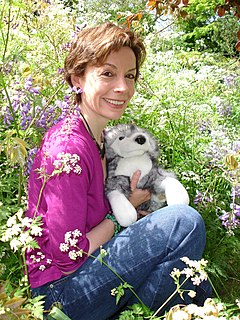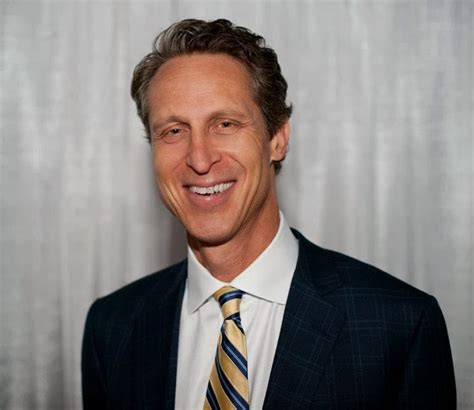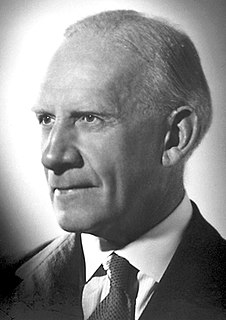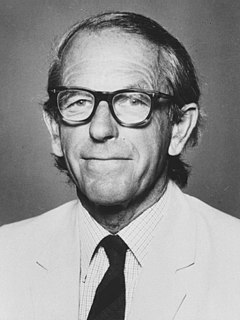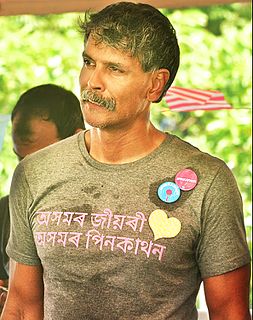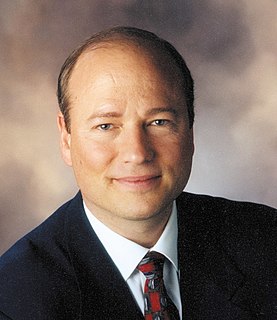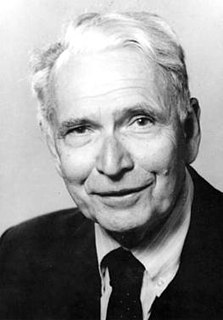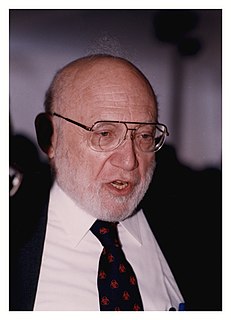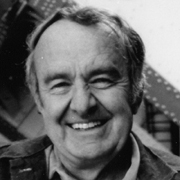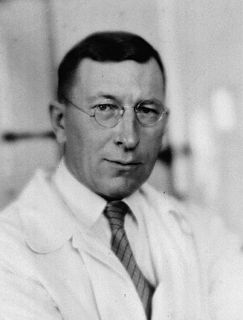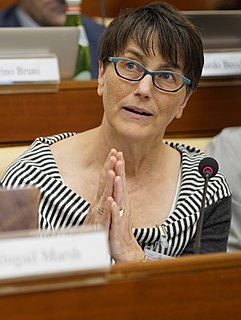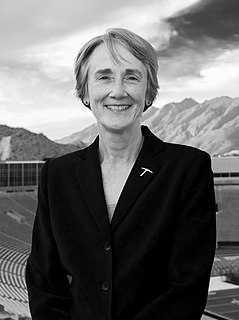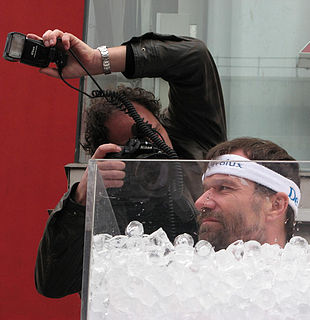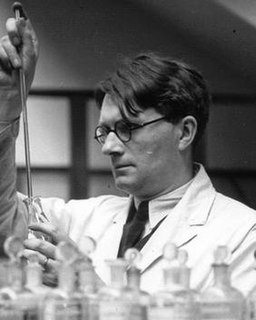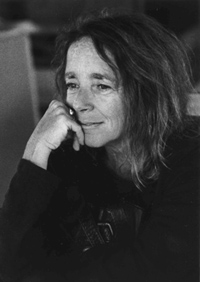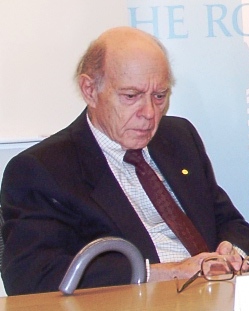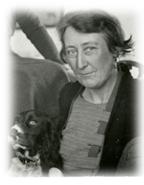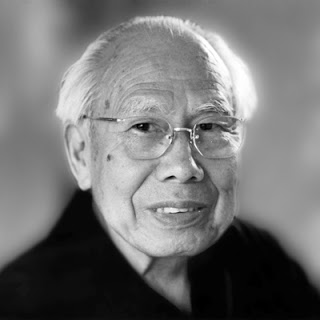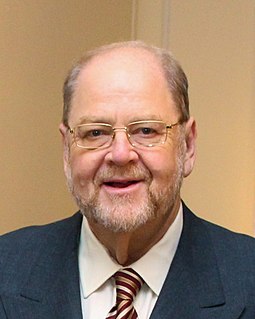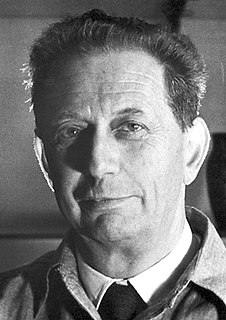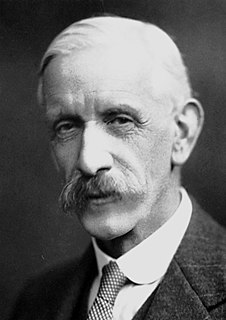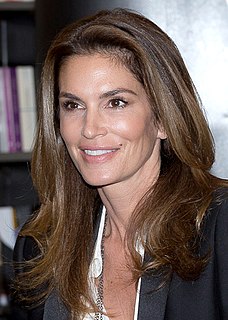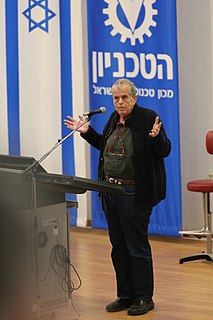Top 59 Biochemistry Quotes & Sayings
Explore popular Biochemistry quotes.
Last updated on April 14, 2025.
Happier thoughts lead to essentially a happier biochemistry. A happier, healthier body. Negative thoughts and stress have been shown to seriously degrade the body and the functioning of the brain, because it's our thoughts and emotions that are continuously reassembling, reorganizing, re-creating our body
If belief in evolution is a requirement to be a real scientist, it’s interesting to consider a quote from Dr. Marc Kirschner, founding chair of the Department of Systems Biology at Harvard Medical School:
“In fact, over the last 100 years, almost all of biology has proceeded independent of evolution, except evolutionary biology itself. Molecular biology, biochemistry, physiology, have not taken evolution into account at all.
The world is too complicated in all parts and interconnections to be due to chance alone. I am convinced that the existence of life with all its order in each of its organisms is simply too well put together. Each part of a living thing depends on all its other parts to function. How does each part know? How is each part specified at conception? The more one learns of biochemistry the more unbelievable it becomes unless there is some type of organizing principle-an architect.
It was an extremely trying time for me. Best was still intimate with MacLeod and the others about the laboratory. I was out of the picture entirely. MacLeod had taken over the whole physiological investigation. Collip had taken over the biochemistry. Professor Graham and Dr. Campbell had taken over the whole clinical aspect of the investigation.
Beyond natural history Other biological sciences take up the study at other levels of organization: dissecting the individual into organs and tissues and seeing how these work together, as in physiology; reaching down still further to the level of cells, as in cytology; and reaching the final biological level with the study of living molecules and their interactions, as in biochemistry. No one of these levels can be considered as more important than any other.
You know what a lima bean does when it's attacked by spider mites? It releases this volatile chemical that goes out into the world and summons another species of mite that comes in and attacks the spider mite, defending the lima bean. So what plants have - while we have consciousness, toolmaking, language, they have biochemistry.
Love is a momentary upwelling of three tightly interwoven events: First, a sharing of one or more positive emotions between you and another; second, a synchrony between your and the other person’s biochemistry and behaviors; and third, a reflected motive to invest in each other’s well-being that brings mutual care
We know from astronomy that the universe had a beginning, from physics that the future is both open and unpredictable, from geology and paleontology that the whole of life has been a process of change and transformation. From biology we know that our tissues are not impenetrable reservoirs of vital magic, but a stunning matrix of complex wonders, ultimately explicable in terms of biochemistry and molecular biology. With such knowledge we can see, perhaps for the first time, why a Creator would have allowed our species to be fashioned by the process of evolution.
The biochemistry and biophysics are the notes required for life; they conspire, collectively, to generate the real unit of life, the organism. The intermediate level, the chords and tempos, has to do with how the biochemistry and biophysics are organized, arranged, played out in space and time to produce a creature who grows and divides and is.
I floated around in the department of biochemistry and learned some interesting things, and then I began to... I never wanted to work with a mentor because I always wanted to have my own reputation and be free to do what I wanted to do. So I worked with the weakest people in the department. Don't make that public.
It could be that at some earlier time, somewhere in the universe, a civilization evolved by probably some kind of Darwinian means to a very, very high level of technology- and designed a form of life that they seeded onto perhaps this planet. And I suppose it's possible that you might find evidence for that if you look at the details of biochemistry, molecular biology, you might find a signature of some sort of designer.
My dad was a scientist. More than that: my dad grew up in a tiny terraced house in Swansea, the only child of a second-generation immigrant family - his father sold cloth, zips and buttons from door to door - and so science - biochemistry at Swansea University, followed by a PhD at Imperial College - was his way out, his way up.
The conclusion of intelligent design flows naturally from the data itself - not from sacred books or sectarian beliefs. Inferring that biochemical systems were designed by an intelligent agent is a humdrum process that requires no new principles of logic or science. It comes simply from the hard work that biochemistry has done over the past forty years, combined with consideration of the way in which we reach conclusions of design every day.
In trying to evaluate Hopkins' unique contribution to biochemistry it may perhaps be said that he alone amongst his contemporaries succeeded in formulating the subject. Among others whose several achievements in their own fields may have surpassed his, no one has ever attempted to unify and correlate biochemical knowledge so as to form a comprehensible picture of the cell and its relation to life, reproduction and function.
The mechanist is intimately convinced that a precise knowledge of the chemical constitution, structure, and properties of the various organelles of a cell will solve biological problems. This will come in a few centuries. For the time being, the biologist has to face such concepts as orienting forces or morphogenetic fields. Owing to the scarcity of chemical data and to the complexity of life, and despite the progresses of biochemistry, the biologist is still threatened with vertigo.
As a progressive discipline [biochemistry] belongs to the present century. From the experimental physiologists of the last century it obtained a charter, and, from a few pioneers of its own, a promise of success; but for the furtherance of its essential aim that century left it but a small inheritance of facts and methods. By its essential or ultimate aim I myself mean an adequate and acceptable description of molecular dynamics in living cells and tissues.


